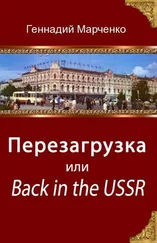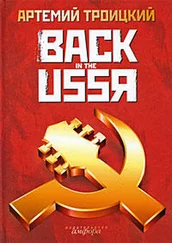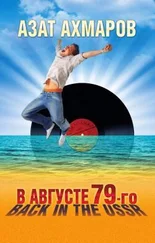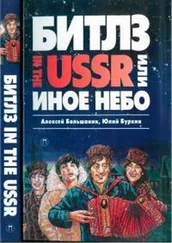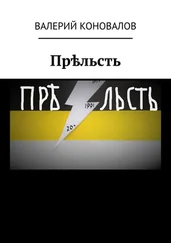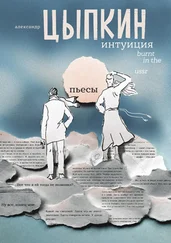Yura comes from Dnepropetrovsk and has been on the road for two years. He has already been in the spets twice and wants to avoid a prison sentence. He intends to stay in the Kuban till autumn and then head off into Central Asia. That idea appeals to me and we decide to stick together. We will stay where we are for the summer, keeping our heads down and avoiding any trouble with the law. That means not showing our faces in towns and not stealing.
I am unable to steal in any real sense; I couldn’t imagine breaking into someone’s house or pickpocketing. As for other sorts of theft — well, everyone in the Soviet Union steals. Our system turns us into thieves. In other countries the most hardened thief knows in his heart of hearts that he’s doing wrong. Even as he’s hauled off to jail he knows that he deserves his punishment. He may not like it but he knows it is just. You have to answer for your deeds. In the USSR, however, everything is turned on its head. We think someone a fool if he does not steal from the state. The authorities think so too. They pay us so little that we have to steal. That way they encourage us to get our hands as dirty as theirs. Then we’re in no position to complain about them, the much greater thieves.
Everyone knows the difference between genuine theft and taking back what has been stolen from us in the first place. We’re only expropriating the expropriators.

“Yura,” I say aloud, “stealing might be wrong, but when the state steals freedom and takes away human dignity, then people begin to construct their own values.”
Yura interrupts me: “Right. And what if everyone invented their own values? What would we have then?”
“Chaos!” I have to admit it.
Yura sleeps. I draw away from the glow of the fire in order to see the stars. I pile up some hay and lie down. I am not drunk. There’s even a drop of samogon left for my morning hair-of-the-dog. With everything taken care of, I relax and start to think about how to live my life in a way that will have some sort of meaning. My attitude to the world around me is changing. My youthful dreams of setting the world on fire have died. I know I will never walk to the North Pole or discover a new chemical element. On the other hand I am less disturbed by my crippled leg. I’ve learned that strength, whether mental or physical, is a cruel and destructive force. Even if you do not intend to use your strength for evil purposes it makes no difference in the end.
After gazing for a long time at the constellations, I come to a decision. I will never again say, ‘If only everyone did as I did,’ or, ‘If only everyone were like that… .’ I have to accept that people will never be the way I want them to be.
I am disillusioned with humanity but I cannot not say I hate it. You can hate flies and cockroaches, you can love bees and cabbage pasties, but I don’t see how you can love or hate ‘people’ when they are all so different. The man who says ‘I love people’ is either a politician or a scoundrel, which are one and the same, or simply an idiot who doesn’t know what he’s talking about. In the course of my life I’ve come into contact with tens of thousands of human beings. Some were fine and others I wouldn’t have cared to meet in hell. Most were harmless enough. It’s unlikely that I myself have caused joy to leap in many hearts.
I decide that from now on I will behave as though other people do not exist. Even when I’m in a crowded bazaar I will act as though I’m on a desert island. To live in and for oneself sounds very simple but in practice it is almost impossible. I am human like anyone else and affected by those around me. Added to which, as a Soviet citizen, I’ve drunk in the word ‘we’ with my mother’s milk. But whether I succeed or not, the most important thing is that I have made my decision. No one can alter it or prevent me from trying to carry it out.
Perhaps I only want to justify my existence, but I don’t think of it like that. Let the clever chaps discover complexes according to Freud or Jung. I feel satisfied and fall sleep at last.
You can only sleep through dawn in the forest if you’re really tired. As soon as the sun peeps above the horizon, the birds begin twittering so loudly that it’s impossible to sleep. Although I don’t drop off until the early hours of the morning I awake in a strangely cheerful and optimistic mood. I’ve become a slightly different person and I feel something good will happen today.
Yura, on the other hand, is sullen. I wonder if he regrets his decision to take me with him. He pulls off his socks and sniffs them, then he lies down again like a dead man until I have brewed chefir, which revives him somewhat. I ask him not to touch the samogon for a while, explaining that I’m frightened of the dt’s.
Coming out onto the main road we start hitching. We decide to go to the bathhouse in Armavir. We stink of bonfires and hay and booze. You can’t get yourself clean in a river, even with soap. Besides which, a steam bath is always a treat. If the mediaeval world rested on three whales, the tramp’s rests on four: railway station; bazaar; police station; bathhouse.
A truck takes us as far as the town of Kropotkin. “We’ve got to keep out of the town,” Yura says. “The Kropotkin police chief doesn’t care for tramps. You’ve heard about him?”
I shake my head.
“He used to be head of a collective farm. Chased out three tramps one day. They snuck back and stole his geese. Then they wrote a request to Moscow radio ‘on behalf of the farm labourers of Armavir’ for the well-known and popular song: Goodbye geese, goodbye! A couple of weeks later the 500 voices of the Piatnitsky choir reminded the farmer that his geese had been nicked.”
“What did he do?”
“Left his farm and joined the Kropotkin police force. Now he takes his revenge on passing tramps.” Yura gives a rare smile. “Vagrants all over the country still send their requests to Moscow. Even those in prison.”
Yura and I are on the road for more than a month, wandering in a circle around the Kuban. The southern earth nurtures us like a kind mother. You can’t take a step without squashing a ripe apricot or a bunch of grapes. All around is a sea of corn and fields overflowing with melons that no one bothers to pick. After they’ve met government sowing targets farm managers relax and let the harvest take care of itself.
I do not listen to a radio or read a paper. I don’t care whether we have cosmonauts in space or receptions for Fidel Castro. My body feels rested and my soul is at peace. No one is nagging at me to work harder or stop drinking.
Then a chill, incessant rain begins to pour down. For three days we barely stick our noses out of a haystack. Once or twice we go up to the nearest farm, where peasants give us as much milk as we want. Yura drinks until his stomach barrels out so tightly you could snap fleas on it with your fingernails.
The rain gets me down. I suggest we take shelter by registering ourselves on a farm. We trudge six muddy kilometres to the nearest farm administration centre and are immediately hired. Yura is sent to tend the cattle while I, as an invalid with no documents except a certificate of graduation from the Novorossisk spets, am hired as a watchman. I patrol at night, shooting in the air to scare off the stray dogs that try to dig up carcasses of diseased cattle from their burial pit. I also have to drive the carthorses out from the stables when the farmers need to take goods to market.
The cattle live in terrible conditions. They don’t have enough to eat because feed is expensive. If they get fed at all it’s only because the farmers feel pity for the animals. It smites your heart to hear three hundred cows mooing from hunger while the cowhands lie paralytically drunk. In the morning farmers tip sugar beets onto the still-frozen earth of the cattle-pen. The starving cows push and shove to get at the food, trampling their own calves into the filth. When the sun rises and softens the ground the animals wallow up to their bellies in mud and excrement. Still, they’re not my responsibility and my job is easy enough.
Читать дальше
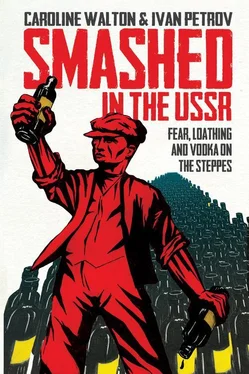

![Геннадий Марченко - Перезагрузка или Back in the Ussr. Книга 1. [СИ]](/books/53319/gennadij-marchenko-perezagruzka-ili-back-in-the-uss-thumb.webp)
